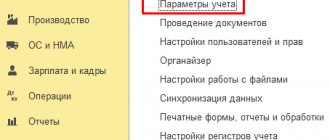All types of earnings and other income from which alimony for minor children is withheld. Download the Decree of the Government of the Russian Federation, which contains a complete list of income from which alimony can be withheld.
We examined the issues of determining the amount of child support in proportion to the earnings or other income of the alimony payer, and figured out in which cases this share can be increased and in which it can be reduced.
At what point do you start withholding alimony?
The need to withhold alimony from an employee’s income arises when documents are received from a bailiff or directly from the recipient of alimony:
- or a writ of execution;
- or a court order;
— or a notarized agreement on the payment of alimony.
The accountant must withhold alimony from the following categories of persons who received income (see table 1).
Table 1 Categories of persons for whom it becomes necessary to withhold alimony when paying income
| Categories of persons to whom income is paid | Withholding of alimony | A comment |
| Full-time employees | + | Art. 98 of Law No. 229-FZ |
| Part-timers | + | Art. 98 of Law No. 229-FZ |
| Homeworkers | + | If an employee who is obligated to pay alimony has several children, and to care for one of them he has taken out parental leave and pays alimony for the other, you need to keep in mind the following: any family member has the right to take parental leave . During parental leave, an employee can work from home while maintaining the right to social benefits (Article 256 of the Labor Code of the Russian Federation). In such a situation, he is paid both a salary and benefits. However, child support is not paid from child care benefits. |
| Seasonal workers | + | Art. 98 of Law No. 229-FZ |
| Employees on parental leave for up to 1.5 years | — | clause 9, part 1, art. 101 of Law No. 229-FZ |
| Citizens with whom student agreements have been concluded | + | The list of income from which alimony must be withheld is open (Resolution of the Government of the Russian Federation of July 18, 1996 No. 841). There is no reason not to withhold alimony from scholarships under a student agreement, including from income in the form of scholarships paid in the minimum amount. |
| Citizens with whom contracts for the performance of work (provision of services) have been concluded | + | subp. “o” clause 2 of the List, approved. Decree of the Government of the Russian Federation dated July 18, 1996 No. 841 |
| Citizens with whom interest-free loan agreements have been concluded | — | When an interest-free loan is returned, the lender does not generate income, and alimony is withheld from the citizen’s income |
| Citizens to whom royalties are paid | + | subp “o” clause 2 of the List, approved. Decree of the Government of the Russian Federation dated July 18, 1996 No. 841 |
| Founders receiving dividends | + | Alimony is withheld from all types of income, including income from shares and other income from participation in the management of an organization (dividends, payments on equity shares, etc.) (subparagraph “k”, paragraph 2 of the List, approved. Decree of the Government of the Russian Federation dated July 18, 1996 No. 841) |
| Citizens to whom the organization compensates for moral damage | + | Based on subparagraph “m” of paragraph 2 of the List, approved. By Decree of the Government of the Russian Federation of July 18, 1996 No. 841, alimony is collected from amounts paid in compensation for harm caused to health. Therefore, if, on the basis of a court decision, this amount was recovered as compensation for moral damage (due to harm caused to health), then alimony must be withheld. |
| Citizens to whom the organization compensates for harm caused to health | + | Part 2 Art. 101 of Law No. 229-FZ |
| Relatives of deceased employees to whom the organization pays funeral benefits | — | clause 17, part 1, art. 101 of Law No. 229-FZ |
In practice, the following situation is possible. A writ of execution was issued, but it did not reach the citizen’s place of work, for example, due to the fault of the post office, while the employee’s ex-wife contacted the organization’s administration with a demand to pay alimony.
It is important to remember that before receiving a writ of execution or an agreement to pay alimony, the accountant does not have the right to make any deductions. The only thing the applicant can do is contact the bailiff service.
In cases where the executive document ultimately arrived at the organization with a delay of several months, the accountant should do so.
First, you need to calculate the maximum amount of deductions from the next payment to the employee. The maximum amount of deductions in the presence of alimony obligations is 70% of income after deduction of personal income tax. This procedure is established by Part 3 of Article 99 of the Federal Law of October 2, 2007 No. 229-FZ “On Enforcement Proceedings” (hereinafter referred to as Law No. 229-FZ).
Next, you need to withhold current alimony, and if the standard for the maximum amount of withholding has not been violated, you must additionally withhold the debt from previous periods.
How to keep child support during a long business trip abroad
For a staff employee sent on a business trip, the organization is obliged to reimburse:
— travel expenses; - expenses for renting residential premises;
- daily allowance; - other expenses incurred with the permission or knowledge of the organization’s administration.
In addition, the employee retains his average earnings while on a business trip.
Alimony is not deducted from the amount of compensation payments. However, not all of these payments are considered compensation. In this case, deductions can be made from average earnings. Confirmation of this is the rules of subparagraph “k” of paragraph 1 of the List, approved. Decree of the Government of the Russian Federation dated July 18, 1996. No. 841 (hereinafter referred to as Resolution No. 841), according to which alimony is withheld from the amount of average earnings retained by the employee in all cases provided for by labor legislation, including during vacation.
Let us note that in practice a situation may arise when an employee on a business trip abroad will be forced to work on a day that is considered a non-working day (holiday) in Russia. As a general rule, during a business trip, an employee retains the average earnings for all days of work according to the schedule established by the sending organization. Moreover, if an employee is involved in work on holidays, then remuneration for work on a business trip is made according to the norms of the Labor Code of the Russian Federation (clauses 5, 9 of the Regulations, approved by Decree of the Government of the Russian Federation of October 13, 2008 No. 749).
The rules for remuneration on holidays are established by Article 153 of the Labor Code of the Russian Federation. Work on a weekend or a non-working holiday is paid at least double the amount:
- piece workers - no less than double piece rates;
- employees whose work is paid at daily and hourly tariff rates - in the amount of at least double the daily or hourly tariff rate;
- employees receiving a salary (official salary) - in the amount of at least a single daily or hourly rate (part of the salary (official salary) for a day or hour of work) in excess of the salary (official salary), if work on a day off or a non-working holiday was carried out on within the limits of the monthly working time standard, and in an amount of at least double the daily or hourly rate (part of the salary (official salary) for a day or hour of work) in excess of the salary (official salary), if the work was performed in excess of the monthly working time standard.
Specific amounts of payment for work on a day off or a non-working holiday may be established by a collective agreement, a local regulatory act adopted taking into account the opinion of the representative body of employees, or an employment contract.
Alimony is withheld from these compensations (sub-clause “e” of clause 1 of the List, approved by Resolution No. 841).
In cases where the employer reimburses an employee for expenses incurred for production purposes with his consent and knowledge, these payments do not increase the basis for calculating alimony. In this case, compensation for non-production expenses can be equated to payment for work and services made by the employer in the interests of the employee, from the amounts of which alimony is withheld.
It is explained this way. The list of payments from which alimony must be withheld is open (paragraph 1, clause 1 of the List, approved by Resolution No. 841). At the same time, in the list of payments from which alimony is not deducted, the cost of work (services) paid for the employee is not listed (Article 101 of Law No. 229-FZ).
Example 1
| Programmer of the organization A.A. Ivanov was sent on a business trip to New Zealand from January 1 to October 1, 2011. The organization's accounting department has a writ of execution to withhold alimony for a minor child in the amount of 1/4 of Ivanov's earnings. For March, the employee was accrued: - payment based on average earnings - 50,000 rubles; — Birthday bonus — 10,000 rubles; — payment for work on the holiday March 8 — 5,000 rubles; — daily allowance — 70,525 rubles; — payment for telephone conversations from the hotel in connection with the need to communicate with the employer during non-working hours — 9,000 rubles; — payment for using a minibar in the hotel — 3,000 rubles. Alimony is collected from the employee’s earnings after personal income tax is withheld (Part 1, Article 99 of Law No. 229-FZ, Clause 1, Article 210 of the Tax Code of the Russian Federation). Ivanov’s income since the beginning of the year has exceeded 280,000 rubles; he is not provided with standard deductions. As of the beginning of March, the employee is a tax resident of the Russian Federation (during the previous 12 months, the citizen stayed in Russia for more than 180 days). Therefore, the tax must be calculated at a rate of 13%. The amount of personal income tax that is withheld from an employee’s income is equal to: (50,000 rub. + 10,000 rub. + 5,000 rub. + 3,000 rub.) x 13% = 8,840 rub. The amount of alimony that must be withheld from the employee’s income is equal to: (50,000 rub. + 10,000 rub. + 5,000 rub. + 3,000 rub. - 8,840 rub.) / 4 = 14,790 rub. Per diem allowance for each day of stay on a business trip and compensation for telephone expenses incurred with the consent and knowledge of the employer do not increase the composition of income from which alimony is subject to deduction. |
Income of military personnel
Pay for those serving in the military differs from other civilian employees. Instead of wages, military personnel receive monetary allowances. Payments are made from the budget of the Ministry of Defense of the Russian Federation.
A serviceman's salary consists of:
- payment for the position held;
- payment for military rank;
- various bonuses (for conditions of service, for class, for dangerous working conditions, for length of service, for maintaining state secrets, for awards).
The full salary is formed from payments for the position and assigned rank.
Expert commentary
Potapova Svetlana
Lawyer
In addition to basic payments, military personnel are entitled to financial assistance and bonuses. Bonuses are usually awarded before a vacation, at the end of the working year, or on the occasion of a holiday or other significant event.
Financial assistance is issued upon receipt of a report from a serviceman. It is accrued due to personal circumstances, such as:
- changing of the living place;
- official transfer to another region;
- birth of a child;
- graduation from a higher educational institution;
- marriage.
If an employee is assigned the duties of an absent military personnel, on the basis of the relevant order, an additional payment is made for combining positions.
How to withhold alimony from the income of a disabled person
A disabled person needs outside care and additional expenses for his maintenance. On this basis, the court may reduce the amount of alimony. However, the accountant should not independently reduce the amount of alimony specified in the writ of execution. Regardless of the presence of applications from a disabled employee about the need to reduce the amount of alimony, you must be guided by the rules specified in the writ of execution (agreement on the payment of alimony).
Example
| The organization's accounting department monthly withheld child support for three minor children from the income of worker P.R. Pestova. The amount of alimony is 1/2 of earnings. In January, the employee was assigned disability (group II) due to an industrial injury. For January, the employee received: - wages in the amount of 10,000 rubles; — sick leave benefit in the amount of 20,000 rubles. The employee’s income since the beginning of the year has not exceeded 280,000 rubles. Pestov has the right to standard tax deductions in the amount of 1,400 rubles, 1,400 rubles, 3,000 rubles, as well as a deduction due to disability (500 rubles). The organization is obliged to withhold personal income tax from the amount of sick leave benefits, including those assigned in connection with an accident at work or an occupational disease (letter of the Ministry of Finance of Russia dated January 22, 2007 No. 03-04-06-01/12). Personal income tax on an employee’s income is equal to: (10,000 rubles + 20,000 rubles - 1,400 rubles - 1,400 rubles - 3,000 rubles - 500 rubles) x 13% = 3,081 rubles. The amount of alimony that needs to be withheld from the employee’s income will be: (10,000 rubles + 20,000 rubles - 3,081 rubles) / 2 = 13,459.5 rubles. |
Transfer deadlines
Withholding of alimony payments is made from the date indicated in the writ of execution. The accounting department must transfer the money to the recipient within three days from the date of accrual of the employee’s salary.
Reference. If the writ of execution was delivered to the employer later than the date from which payments were established, then the funds will be collected taking into account the past period, for example, two months at once.
Read about the timing and procedure for transferring alimony in a separate material.
The child support payer has a child
As a general rule, the amount of alimony is 1/4 of the amount of income for one child, 1/3 for two children, 1/2 for three or more. The size of these shares may be reduced or increased by the court, taking into account the financial or family status of the parties and other noteworthy circumstances.
It is important for an organization’s accountant to remember that the birth of their own children (in a new family) is not a basis for reducing the amount of child support for a child left with the other parent. It is either the court or the child’s parents by mutual consent that must change the amount of alimony, and not the accountant.
Minimum child support in 2021
Yuri Kapshtyk , lawyer, mediator for family disputes, says that if the father does not officially work, the minimum amount of alimony in 2021 could be more than seven thousand rubles.
“There is such an already established practice: even if a person is not employed, then the calculation of alimony debt is done based on Federal legislation,” explains Yuri Nikolaevich and especially notes that this amount varies depending on the region, since the standard of living in Moscow and, for example, the regional center in the Penza region is significantly different, which means the amount of benefits should be different.
Experts emphasize that the lack of official income in no way relieves the father of responsibility for supporting his child. In any case, the accumulated debt will be collected after the financial situation of the debtor is corrected. This is due to the fact that many unscrupulous alimony providers, in order to hide the level of their income, deliberately work under temporary employment contracts, which are not officially reflected anywhere. They also deliberately occupy low-paid positions by agreement with the employer, receiving a minimum salary on paper, thereby hiding their actual income.
Since one cannot rely on the conscience and moral principles of negligent fathers in this situation, in recent years the practice has developed of calculating minimum alimony based on the normative minimum level.
pixabay.com/RitaE
Alimony from the income of the founding employee
As stated above, alimony must be withheld from dividends. It is important to keep the following in mind.
In joint stock companies (JSC), the decision on the payment of dividends must be made by the general meeting of shareholders (clause 3 of Article 42 of the Federal Law of December 26, 1995 No. 208-FZ). And in limited liability companies (LLC) - a general meeting of participants (Clause 1, Article 28 of the Federal Law of 02/08/1998 No. 14-FZ). In organizations with a single founder, this decision is made by the founder himself. If at the general meeting (or on the basis of a decision of the sole founder) a decision is made not to distribute dividends, no payments need to be made in favor of the recipient of the dividends.
An important question is from what point does the obligation to withhold dividends arise if the decision to distribute profits is made, but for some reason the dividends were not paid to the founder.
The specific period and procedure for paying dividends to JSCs and LLCs must be recorded in the company's charter or a decision of the general meeting of shareholders (participants). Only the deadline for payment is limited - no later than 60 days from the date on which the corresponding decision was made. This is stated in paragraph 4 of Article 42 of the Federal Law of December 26, 1995 No. 208-FZ and paragraph 3 of Article 28 of the Federal Law of February 8, 1998 No. 14-FZ.
If a shareholder (participant) has not received dividends during the payment period, he has the right to contact the company with a corresponding demand within three years. The charter of a JSC and LLC may provide for a longer period for filing such claims (up to five years). This procedure is provided for by paragraph 5 of Article 42 of the Law of December 26, 1995 No. 208-FZ and paragraph 4 of Article 28 of the Law of February 8, 1998 No. 14-FZ.
If within the specified period the founder does not request the payment of dividends, he, as a general rule, loses the right to claim the income due to him. Dividends declared (distributed) but not claimed by shareholders (participants) are restored as part of the company’s retained earnings (clause 5, article 42 of the Federal Law of December 26, 1995 No. 208-FZ, clause 4 of article 28 of the Federal Law of 08.02 .1998 No. 14-FZ).
These rules allow us to conclude that before receiving dividends the founder should not allocate the amount of alimony and transfer it to the recipient.
If the founder refused dividends in favor of the organization, alimony must be withheld. In this case, you can use the arguments given in the letter of the Ministry of Finance of Russia dated October 4, 2010 No. 03-04-06/2-233 regarding personal income tax. This letter states that the day the taxpayer refuses the dividends due to him in favor of the organization that pays them is the date of actual receipt of income, which is subject to taxation on personal income tax on a general basis.
Let's consider another difficult situation when withholding alimony. Organizations can pay the founders part of the profit quarterly, every six months or once a year (clause 1, article 42 of the Law of December 26, 1995 No. 208-FZ, clause 1 of Article 28 of the Law of 02/08/1998 No. 14-FZ). Dividends paid for a period of less than a year are in practice often called interim. The organization must fulfill the obligation to withhold alimony both in relation to dividends for the year and in relation to interim dividends, since no exceptions in this regard are provided for in the current legislation of the Russian Federation (Article 101 of Law No. 229-FZ).
The amount of alimony is determined after personal income tax is withheld. For dividends, a reduced tax rate is applied - 9% (if the founder is a resident of the Russian Federation).
However, the amounts of interim dividends paid to the founders when the organization receives a loss at the end of the year for tax purposes cannot be considered dividends. Consequently, personal income tax must be recalculated and withheld at a rate of 13% (Article 224 of the Tax Code of the Russian Federation, letter of the Federal Tax Service of Russia dated March 19, 2009 No. ShS-22-3/210), which means the amount of alimony will change.
Example 3
| Based on the results of the first half of the year, the organization paid dividends to General Director A.V. Lapin in the amount of 100,000 rubles. The employee is a tax resident of Russia. The organization's accounting department has a writ of execution to withhold alimony in favor of Lapin's minor son in the amount of 1/4 of the employee's income. The personal income tax amount is: 100,000 rub. x 9% = 9,000 rub. Alimony from dividends must be withheld in the amount of: (100,000 rubles - 9,000 rubles) / 4 = 22,750 rubles. At the end of the year, the organization incurred a loss. Consequently, the amount of personal income tax on payments of interim dividends will change. The employee’s income since the beginning of the year has exceeded 280,000 rubles; he does not have the right to standard deductions for personal income tax. The amount of personal income tax on income in the form of interim dividends is equal to: 100,000 rub. x 13% = 13,000 rub. Alimony will be: (100,000 rubles - 13,000 rubles) / 4 = 21,750 rubles. The accountant took into account the overpayment of alimony when making subsequent deductions. |
Should alimony be withheld when purchasing an employee's property?
In practice, a situation is possible when the employing organization purchases expensive property from an employee, for example, an apartment or a car. The relevant question is: is it necessary to withhold alimony under a writ of execution in this case?
Disputes on this topic have been going on for a long time. The current legislation of the Russian Federation does not clearly explain from which income alimony should be withheld. Therefore, some courts made decisions in favor of the recipients, while others argued that such income should not be subject to alimony. In other words, until recently, the solution to this complex issue was entirely left to the judges.
So, for example, in the Determination of the Judicial Collegium for Civil Cases of the Supreme Court of the Republic of Mari El dated May 20, 2010 in case No. 33-704, the following conclusion was made. Withholding alimony is possible if income is received from the sale of property (according to the case file - a car), i.e. the amount received exceeds the price of the property at purchase. Otherwise, there is no reason to believe that as a result of the alienation there was an increase in property, that is, the citizen received income from the sale of an item that was in his possession and use. Under such circumstances, it cannot be accepted as correct that the citizen has received income from which alimony for a minor child should be withheld on the basis of subparagraph “o” of paragraph 2 of the List, approved. Resolution No. 841.
The ruling of the Constitutional Court of the Russian Federation dated January 17, 2012 No. 122-O-O actually proclaimed the opposite conclusion - when selling real estate and other property, an obligation to pay alimony arises. This is a fairly large part of the cost - from 25% to 50%, therefore, despite the fact that decisions of the Constitutional Court of the Russian Federation are binding on all citizens and organizations, it is better to warn the citizen in advance that the organization purchasing the property, which has a writ of execution for alimony , will be forced to make deductions and obtain his consent to this.
Collection procedure
To collect alimony, you must have a writ of execution provided by court decision. This sheet contains details, accounts and other information necessary for collection. The role of a writ of execution can be played by an ordinary agreement between spouses, signed voluntarily and notarized. The agreement has the same force in relation to the court decision.
It is necessary to indicate the place where the recipient will be given alimony. This can be a cash register or a simple transfer, if desired. But, given the secrecy of some units, it is better to receive transfers by mail. Simply because the territory of some military units is closed to civilians, so the path to the ticket office may not be possible.
When to stop withholding child support
Cases of termination of alimony withholding are given in Article 120 of the RF IC. Alimony obligations established by an agreement on the payment of alimony are terminated by the death of one of the parties, the expiration of this agreement, or on the grounds provided for by this agreement.
Payment of alimony collected in court is terminated: - upon the child reaching the age of majority or in the event that minor children acquire full legal capacity before they reach adulthood; - upon adoption of a child for whose maintenance alimony was collected;
- death of the person receiving alimony or the person obligated to pay alimony.
Thus, it is necessary to stop accruing alimony, in particular, after the child of the employee (for whose maintenance the alimony is intended) reaches the age of majority.
A person is considered an adult after reaching 18 years of age. In case of marriage before reaching this age, the child is recognized as fully capable and the obligation to withhold alimony ceases.
Example 4
| From the income of lawyer I.I. Svetlova receives monthly alimony for a minor child in the amount of 1/4 of his income. Svetlov provided the organization’s accounting department with a marriage certificate for his minor daughter. The accountant stopped withholding alimony from the employee's earnings. The writ of execution was sent to the bailiff. The accompanying letter indicated that the withholding of alimony from the employee should be terminated due to the child acquiring full legal capacity. |
According to paragraph 1 of Article 27 of the Civil Code of the Russian Federation, a minor who has reached the age of sixteen can be declared fully capable if he works under an employment contract, including a contract, or with the consent of his parents, adoptive parents or trustee is engaged in entrepreneurial activity. In light of this, the relevant question is: is a certificate of employment of an employee’s child sufficient to stop withholding child support?
This question should be answered in the negative. According to paragraph 2 of Article 27 of the Civil Code of the Russian Federation, declaring a minor fully capable is made by decision of the guardianship and trusteeship authority or the court. Therefore, the mere fact of concluding an employment contract does not affect the parent’s child support obligations.
It is also important to note that the fact that a child who has reached the age of 18 has no income is not a basis for continuing the accrual of alimony. Thus, there is no need to withhold child support for adult children entering university. The exception is the situation when the writ of execution itself states the need to withhold alimony.
The court may increase the period of payment of alimony after the child reaches the age of 18 in exceptional cases. For example, if a child is disabled and needs financial assistance or is seriously ill (Article 86 of the RF IC).
An important question is how to calculate the amount of child support for the month in which the employee’s child turned 18 years old. In this case, you must be guided by the following rules. Child support obligations terminate when the child reaches the age of majority, unless otherwise determined by a court decision. According to Article 108 of the Code of Civil Procedure of the Russian Federation, a period calculated in months expires on the corresponding date of the last month of the period. Thus, if the writ of execution states that alimony payments are made monthly until the child reaches the age of majority, then alimony payments stop on the day of majority, since this is the corresponding date of the last month of the alimony payment period.
When one of the children reaches adulthood, the amount of child support must change. As a rule, the court sets alimony in the amount of 1/4 of the amount of income for one child, 1/3 for two children, 1/2 for three or more.
However, the accounting department itself does not have the right to establish a new amount of alimony after the eldest child reaches the age of majority. If the writ of execution does not resolve this issue, you need to notify the recipient of alimony in advance about the need to review the amount of deductions (including by the court) or contact the bailiff for clarification of the wording of the writ of execution.
Example 5
| From the income of engineer M.S. Petrov is withheld child support for two minor children in the amount of 1/3 of his earnings. The writ of execution states that alimony is subject to withholding until the child reaches adulthood. One of Petrov’s children turned 18 on April 16. For April Petrov was accrued: — salary in the amount of 20,000 rubles; — compensation for the use of a personal car for business purposes in the amount of 2,000 rubles; — temporary disability benefit in the amount of 2,000 rubles; — payment for the day of blood donation (donation) — 1,000 rubles; - bonus for complexity and intensity of work - 1,000 rubles. Petrov’s income since the beginning of the year has not exceeded 280,000 rubles. He is provided with standard personal income tax deductions in the amount of 1,400 rubles. and 1,400 rub. Compensation for the use of a car is exempt from personal income tax. The amount of personal income tax on Petrov’s income is equal to: (20,000 rub. + 2,000 rub. + 1,000 rub. + 1,000 rub. - 1,400 rub. - 1,400 rub.) x 13% = 2,756 rub. At the same time, alimony is withheld from compensation for the use of an employee’s personal transport (letter of the Ministry of Health and Social Development of Russia dated August 3, 2011 No. 13-1/355166-41). The amount of child support for a child who turned 18 in April is equal to: (20,000 rubles + 2,000 rubles + 2,000 rubles + 1,000 rubles + 1,000 rubles - 2,756 rubles) / 30 x 15 / 6 = 1,937 rub. The amount of alimony for a child under the age of majority will be: (20,000 rubles + 2,000 rubles + 2,000 rubles + 1,000 rubles + 1,000 rubles - 2,756 rubles) / 6 = 3,874 rubles. The total amount of alimony that needs to be transferred to the recipient from the employee’s income for April will be: RUB 1,937 + 3,874 rub. = 5,811 rub. |
What is withholding of alimony payments?
Alimony payments assigned to the payer in a certain amount are withheld from his income. In other words, every month, unless another collection procedure is documented, alimony payments are deducted from wages and transferred to the recipient.
To deduct funds from wages, you must have a writ of execution on the basis of which alimony is established. It could be:
- A writ of execution issued after consideration of a case for the recovery of financial assistance in court.
- A voluntary alimony agreement concluded between spouses by mutual consent and certified by a notary (Article 99 of the Family Code of the Russian Federation).
Important! If there are no enforcement documents, then in order to withhold payments it is necessary to carry out a collection procedure. Spouses can independently agree on payments, or one of the parents will go to court to forcefully collect funds (Article 106 of the RF IC).
To withhold alimony, the writ of execution is sent to the payer’s employer. If payments are made on the basis of an agreement, then this document can be sent to the organization by both the payer and the recipient. If the decision was made in court, then the writ of execution may also come from the bailiff service.
If the parent fulfilling the obligation to pay child support is employed simultaneously in several enterprises, then in order to withhold payments, each of them must be provided with the original writ of execution.








